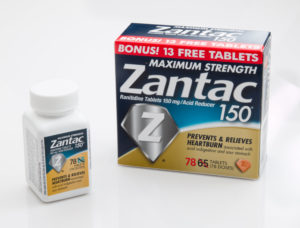Provider associations displeased with nursing home painkiller bill
A bill introduced last month by Sen. Herb Kohl (D-Wis.), titled the “Nursing Home Resident Pain Relief Act of 2011,” requires major revisions if it should live up to its namesake, according to policy experts from both LeadingAge and the American Health Care Association.
Kohl, who is the chairman of the Senate Special Committee on Aging, has grappled with the Drug Enforcement Administration (DEA) in recent years over the agency’s strict guidelines on the prescribing practices of controlled substance medications in nursing homes. While the DEA last year released a statement of policy confirming that nurses in SNFs can be designated as agents of the prescriber to transcribe a physician’s oral prescription for Schedule III, IV or V medications to a pharmacy, it did not touch on the more heavily used Schedule II painkillers.
Kohl’s bill would amend the Controlled Substances Act, which the DEA must follow in its enforcement practices, to allow newly appointed “facility designees” to communicate a physician’s oral prescription for Schedule II substances in an “emergency situation.”
Cheryl Phillips, MD, senior vice president for advocacy at LeadingAge, expressed several issues with the bill, although LeadingAge has not come out with an official opinion at the time of this report. “I really want to focus on this from the patients’ perspectives, because the intent and the key reason to apply all of this energy was to improve timely access for needed pain meds, and our concern is this bill doesn’t achieve that,” Phillips said.
LEADINGAGE: ‘THREE PROBLEMS’
LeadingAge took issue with three main aspects of the bill, Phillips said. The first is that it does not define what constitutes an “emergency situation.”
“If nursing homes or pharmacies or even states come up with their own and variable definitions of emergency, then the real losers are the patients who are in pain,” Phillips said. The fear is that nurses would hesitate to invoke the need to use emergency meds because of the legal ramifications if their assessment of a situation is wrong in the eyes of the law.
Phillips offered her own definition. “Frankly, as a geriatric physician, I think that any time a patient is in pain that is not managed with the current regimen, then it needs to be addressed—that’s an emergency,” she said. “The problem is that’s a very broad definition and I know the DEA will not accept that one.”
In the vein of more paperwork, the legislation also imposes recordkeeping requirements on all parties: nursing facilities, physicians and pharmacies. Facilities and individual facility administrators are also liable for civil and/or criminal penalties in the event of non-compliance.
The third problem LeadingAge pointed out is that the “core, underlying issue that this bill doesn’t get to is we really need a mechanism whereby nurses can be deemed agents as they can in acute care hospitals,” Phillips said. The DEA only has two classifications for nurse agent certification—either acute care hospital or community pharmacy—and nursing homes are being pushed into a classification that is inappropriate (community pharmacy). “We have patients with acute care needs 24/7. This isn’t an outpatient setting, and yet when the regulations were written in the ’70s, the demographics of nursing home patients were very different,” Phillips said.
“I respect and appreciate Sen. Kohl’s efforts in trying to improve this,” Phillips continued. “I don’t think this bill does it because it doesn’t get to the timely access [of pain meds].”
AHCA: BILL ‘FUNDAMENTALLY FLAWED’
David Gifford, senior vice president for Quality & Regulatory Affairs at the American Health Care Association, said in an official statement last week that Kohl’s bill is “fundamentally flawed” for putting “paperwork over patients.”
“[T]he Kohl bill would create a new set of guidelines and procedures to follow for administering pain medications—a more time-consuming and confusing process that is more likely to dissuade doctors from caring for patients in facilities than to speed relief of patients in pain,” the AHCA statement read.
AHCA also stated that mandates in the bill that are intended to prevent diversion of controlled substances would do “nothing to further prevent diversion, all the while adding additional time to help relieve a patient’s pain.”
While AHCA and LeadingAge have expressed different problems with the bill, the consensus between the two organizations is that timely access to important Schedule II medications is not being addressed satisfactorily, and both are calling for LTC nurses to be granted agent of the prescriber status that a nurse working in a hospital or physician’s office would operate under.
Phillips said she believes there will be “much resistance” to the bill from nursing home and physician communities, as well as from patients and patient advocates, and predicts “it will either not pass or go back for more revisions,” she said. Both LeadingAge and AHCA expressed a desire to work with Kohl and other senators to reshape the bill.
“It’s very easy to say what this bill doesn’t do,” Phillips said. “[LeadingAge] would like to try to offer some tangible solutions that Sen. Kohl and his staff might take into consideration.”

Kevin Kolus wrote for I Advance Senior Care / Long-Term Living when he was an editor. He left the brand in 2012. He is now senior communications manager at Cleveland Clinic.
Related Articles
Topics: Articles , Regulatory Compliance











